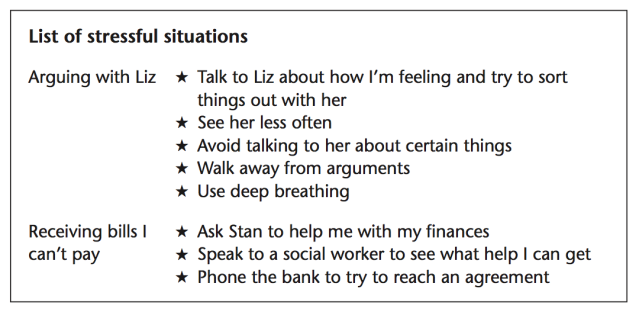Stress
How to Reduce Stress
Simple advice for better living.
Updated June 24, 2024 Reviewed by Devon Frye

Stress is a deeply unpleasant state that saps all the texture, beauty, and joy out of being alive. It is an important cause of depression, suicide, anger, accidents, headaches, heart attacks, cancer, and countless other ills. Stressed people live poorer and shorter lives. They live less.
Although stress is often related to life events such as losing a loved one, getting divorced, or falling ill, most of the day-to-day stress that we experience comes from smaller ‘background’ stressors such as constant deadlines, fraught relationships, painful memories, isolation, discrimination, poor housing, and unpaid bills.
The amount of stress that a person can handle is related to his or her thinking styles and social skills. People with positive thinking styles and good social skills are in a better position to diffuse stressful situations—for example, by doing something about them, putting them into perspective, or talking them through with a supportive other.
Even so, no one is entirely free from stress, and everyone could benefit from following this three-step plan:
1. Learn to recognise the warning signs of stress.
- Emotional symptoms: Anxiety, fear, irritability, anger, resentment, loss of confidence
- Cognitive symptoms: Difficulty concentrating or making decisions, confusion, repetitive or circular thoughts
- Physical symptoms: Dry mouth, tremor, sweatiness, pounding or racing heartbeat, chest tightness and difficulty breathing, muscle tension, headache, dizziness
- Behavioral symptoms: Nervous habits such as nail-biting or pacing, drinking more coffee or alcohol, eating too much or too little, sleeping poorly, acting brashly or unreasonably, losing your temper, being inconsiderate to others, neglecting your responsibilities
2. Next, list the situations in which you feel that way
3. Lastly, try to come up with one or more strategies for preventing, avoiding, or diffusing each situation on your list.
Here's an example:

You can also use some more general strategies for reducing stress.
Deep breathing involves regulating your breathing:
- Breathe in through your nose and hold the air in for several seconds.
- Purse your lips and gradually let the air out. Exhale as far as you comfortably can.
- Carry on with this cycle until you are feeling much more relaxed.
Try it now. I promise you’ll notice the difference.
You can combine deep breathing with relaxation exercises:
-
Lying on your back, tighten the muscles in your toes for 10 seconds and then relax them completely.
-
Do the same for your feet, ankles, and calves, and work all the way up to your head and neck.
Other general strategies for reducing stress include: preparing and/or enjoying a good meal, listening to soft music, taking a hot bath (dim the lights and add in a few drops of your favourite essential essential oil, such as lavender or orange), reading a good book, watching a comedy series, calling or meeting a friend, playing with a pet, going on a nature walk, exercising, practising yoga or meditation, and giving and receiving massage (even if it is only to the back of your head and neck).
Lifestyle changes can both decrease stress and increase your resilience to it.
Lifestyle changes to consider include:
- Simplifying your life, even if this means doing less or doing only one thing at a time.
- Getting enough sleep.
- Going for a daily walk, or some other form of exercise.
- Eating food that is tasty, nutritious, and varied.
- Restricting your intake of coffee and alcohol, e.g. limiting alcohol to just wine with dinner.
- Taking the time to do the things you enjoy.
- Connecting with others by sharing thoughts and feelings.
- Altering your thinking styles: being more realistic, reframing problems, testing your thoughts and feelings, and maintaining a sense of humour.
These lifestyle changes are all pretty pleasant, and good not only for reducing stress but also for improving your overall health, physical appearance, and quality of life.
Though individually small and simple, their cumulative effect can be absolutely transformative.
If you continue to struggle with stress, discuss the issue with a professional or seek relaxation training.
Read more in Growing from Depression: A Practical and Philosophical Self-Help Guide.
LinkedIn Image Credit: Wedding and lifestyle/Shutterstock


